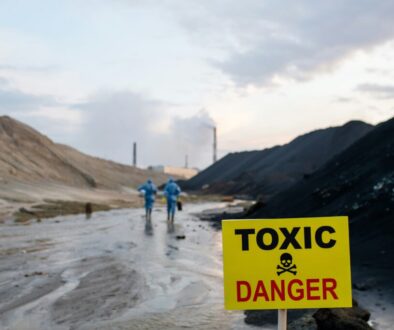Postcard from California: Governor targets oil companies over high gas prices
 Last June, a Chevron station in downtown Los Angeles charged $8.05 for a gallon of regular gas. At another Chevron station In the coastal village of Mendocino, the price that month hit $9.60.
Last June, a Chevron station in downtown Los Angeles charged $8.05 for a gallon of regular gas. At another Chevron station In the coastal village of Mendocino, the price that month hit $9.60.
In a summer when US gas prices spiked to their highest level ever, those were extreme outliers, and they soon came down. But as they have for years, Californians continue to pay higher gas prices than in any other state except Hawaii.
This week, the statewide average was $4.75 a gallon, compared to the nationwide average of $3.39. At one point in October, even as global oil prices dropped, California’s average gas price surged to $2.60 more than the nation’s.
Some of the difference stems from the fact that state gas taxes are the highest in the US, and some from state rules for California’s special blend cleaner-burning fuel, which is more expensive to refine. But that leaves what University of California, Berkeley energy economist Severin Borenstein calls a “mystery gasoline surcharge” that can’t be fully explained by taxes and environmental regulations. He estimates that since 2015 the surcharge has cost California drivers $40 billion.
On Wednesday, lawmakers in Sacramento took up a proposal from Gov. Gavin Newsom that would make California the first state to fine oil companies for what he terms gas price gouging, and to return their excess profits to consumers.
In a video release promoting his plan, the Democratic governor declared: “Big Oil is ripping you off AND lying to you!”
“Big Oil’s been out there pushing the same old lies and myths to protect their record profits,” Newsom said. “Big Oil won’t say why they suddenly started charging Californians more than people in other states, but we know that resulted in record profits.”
Profits climb
More than 95% of the gasoline sold in California comes from just five refining companies – Chevron, Marathon Petroleum, Valero, Phillips 66 and PBF Refining – that set minimum prices at gas stations throughout the state. Last year, those companies made a combined profit of more than $75 billion – almost three times what they made in 2021.
Many details of the governor’s price gouging bill – SBX2, carried by state Sen. Nancy Skinner of Berkeley – must still be filled in. Its stated intent is for the California Energy Commission to set a cap on refiners’ per-gallon profits. If refiners exceed the cap, they’d have to pay a civil penalty, which the state would rebate to motorists.
The advocacy group Consumer Watchdog reports that last year the top five California refiners made an average profit of 66 cents per gallon, more than twice their historic average. The group says capping profits at the national average of 50 cents a gallon would have returned penalties of $3.3 billion to California motorists last year.
Polling by the bill’s advocates shows that well over 60% of California voters are in favor of the proposal. But the first hearing on the bill, before the Senate energy committee, showed that it may face a difficult path to approval.
The oil and gas industry remains the most powerful special interest in California politics, spending $34 million lobbying state lawmakers last session. Although Democrats hold a commanding majority in both houses of the legislature, the oil lobby will try to pick off enough votes from business-friendly “moderate Dems” to kill the bill.
Several senators on the committee – both Republicans from oil-producing districts and moderate Democrats – echoed the argument from a Western States Petroleum Association lobbyist: Penalizing excess profits would drive refiners out of state, resulting in gas shortages and higher prices that would fall hardest on lower-income Californians who commute long distances to work.
“What the hell are the possible unintended consequences that could hurt those very people to a greater extent?” asked state Sen. Bill Dodd, a Democrat from Napa.
Skinner, the bill’s sponsor, countered that because California is the third-largest gasoline market in the world, refiners would be foolish to abandon the state – even though Newsom has ordered that all new vehicles sold in California must be electric by 2035.
“Predatory behavior”
And there’s the rub: Newsom’s proposed price gouging penalty is a high-stakes escalation of the increasingly personal war between the governor and the oil and gas industry.
Newsom has charged that last fall’s shocking price surge was “retribution” by the oil companies for his electric-vehicle mandate and other policies to phase out fossil fuels. Last year, the legislature passed a Newsom-backed measure to ban new oil and gas wells within 3,200 feet of homes, schools and businesses.
Within days, the oil and gas industry launched a petition drive to overturn the new law. Despite allegations of lying by paid petition circulators, the industry got enough signatures to place the issue before voters, putting the new law on hold until the November 2024 elections.
Because oil companies’ pricing decisions are considered trade secrets protected by law, the state is unable to get to the bottom of the ongoing mystery surcharge or sudden price spikes. Newsom’s bill would also require more transparency from refiners, which would help state regulators come up with ways to prevent future price shocks.
Meanwhile, the fossil fuel industry continues to reap huge profits from the products fueling the climate crisis, helping to fund its efforts to protect its bottom line.
At the hearing, Kassie Siegel, senior counsel for the Climate Law Institute, an arm of the Center for Biological Diversity advocacy group, pointed out that the California oil industry has spent $20 million on its deceptive campaign to overturn the bill banning drilling near homes and schools.
“As the climate emergency intensifies, the industry knows their days are numbered, and they’re doing everything they can to stick Californians with the bill on the way out the door,” Siegel said.
“The industry is using its windfall profits to greenwash, to sue, to do anything to stop the state’s life-saving environmental health and climate protections,” she said. “This is predatory behavior. This is not a neutral policy debate. It is a matter of life and death.”
- Bill Walker has more than 40 years of experience as a journalist and environmental advocate. He lives in California’s San Joaquin Valley.
(Opinion columns published in The New Lede represent the views of the individual(s) authoring the columns and not necessarily the perspectives of TNL editors.)
 EWG
EWG


